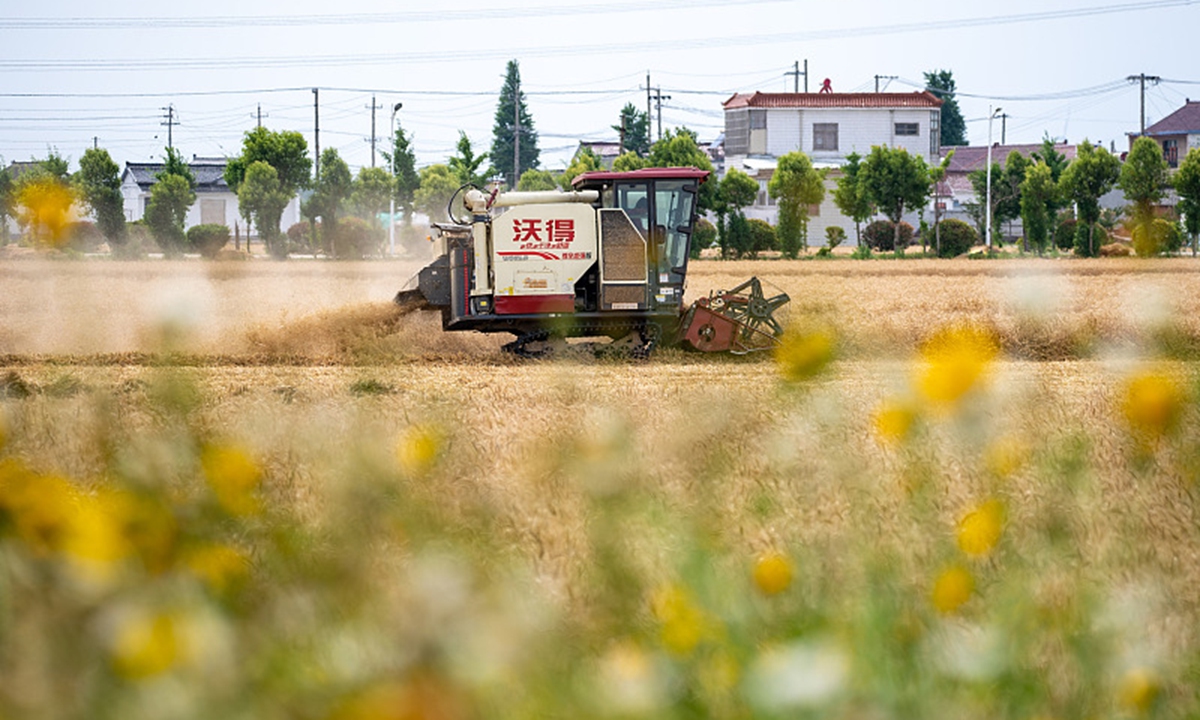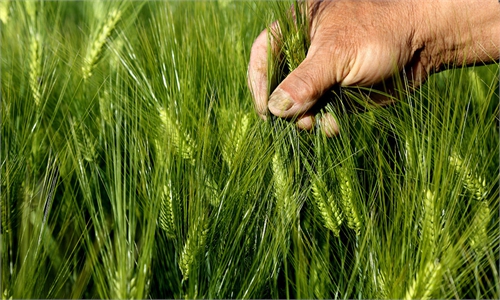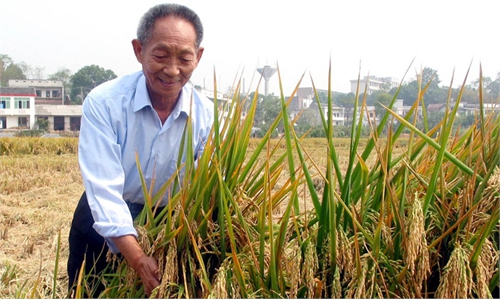
Harvest machine harvests wheat at cropland in Taizhou, East China's Jiangsu Province, on June 4, 2024. Photo: CFP
China's wheat harvest in major grain-producing provinces is gaining momentum, driven by advanced agricultural technology. More than 40 percent of the harvest across the country has been completed to date, according to official data.Agricultural experts said it signals the beginning of the peak summer harvest season in a year and sets the stage for a bumper grain output this year.
Chinese government has been committed to bolstering agricultural development through technological innovation, which will help ensure national food security as well achieve rural revitalization. Agricultural experts said that it will lay a solid foundation for achieving the target outlined in China's No 1 central document for 2024, which aims to sustain annual grain production above 650 million tons.
In recent years, advanced technology has become a pivotal driver of China's high-quality and green rural development. In the country's major grain-producing regions, efforts are being intensified to leverage technological advancements such as drones, the Internet of Things (IoT), cloud computing, and other solutions to enhance agricultural production efficiency and ensure grain yields.
Taking Linying, Luohe, China's Henan Province as an example, increased efforts are being made to deploy automated equipment and promote technology-enabled intercropping models to enhance wheat production. The seamless integration of advanced tools, including aerial cameras, seed sensors, and 5G networks, is facilitating a bumper harvest and boosting economic returns for farmers.
As of Monday, Henan had harvested wheat on 69.82 million mu, accounting for more than 80 percent of its total planted area, according to official data.
China's summer grain output is expected to see a significant increase this year, thanks to supportive policies and favorable weather conditions, Li Guoxiang, a research fellow at the Rural Development Institute of the Chinese Academy of Social Sciences, told the Global Times on Tuesday. A bountiful summer harvest will guarantee autumn grain production and create favorable conditions for this year's and next year's output, Li said.
Li highlighted the crucial role technology is playing in China's agricultural development, given the country's large population and limited arable land.
"In China, we are witnessing how digital technology has enabled smart farming, and how artificial intelligence has aided agricultural management. These advancements ensure the country's food security," Li said.
Official data showed the contribution rate of agricultural technological progress in China has exceeded 63 percent, with over 96 percent coverage of high-quality crop varieties and a comprehensive mechanization rate surpassing 74 percent, showcasing technology's pivotal role in ensuring abundant grain harvests.
On Saturday, China's food security law took effect, designed to ensure the supply of grain and related products to address food security risks and safeguard national security. According to the law, the country will enhance sci-tech innovation and IT applications to ensure food security and support basic and key technology research and development (R&D) for grain harvest.
The move is aligned with the central government's call for a greater effort to strengthen the dual drivers of technology and reform, and intensify efforts to make breakthroughs in core technologies in key fields, according to the Central Rural Work Conference held in December 2023.
China has always listed food production and security high on its economic agenda. Despite natural disasters, the country's grain production in 2023 remained stable, with grain output exceeding 1.3 trillion kilograms and the per capita grain output reaching 490 kilograms, surpassing the international food security standard.
Global Times



